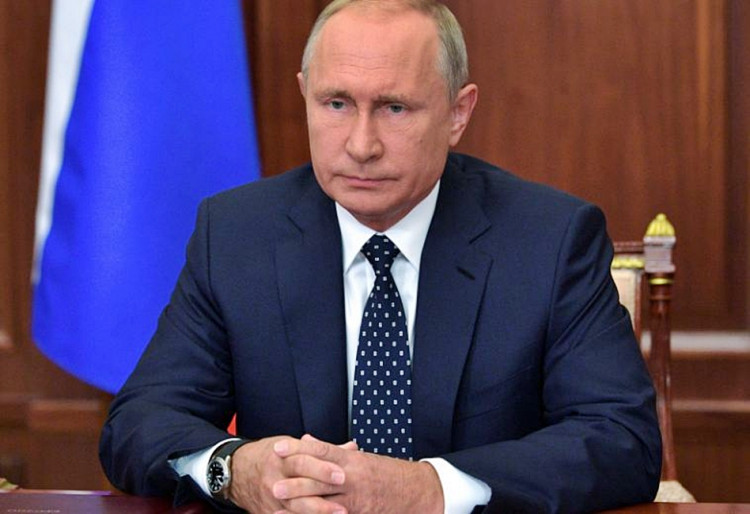Vladimir Putin's hold on power, and the stability of his beloved Russia is being threatened as never before by a hugely unpopular pension reform program that raises the retirement age and thus delays the release of pensions for Russia's millions of pensioners.
The reason was given by Putin for drastically revamping Russia's pension system: the country doesn't have the money to afford it.
Prime Minister Dmitry Medvedev's announced the planned overhaul of the pension system in July Hundreds of thousands of pensioners and their supporter have taken to the streets since then in rally after rally to rail against the gradual increase of the retirement age. A massive protest is being called by opposition leader Alexei Navalny for Sept. 9, the date for nationwide Russian elections.
Medvedev said pension reform will be a step-by-step process. The retirement age for women will increase to 63 by 2034. Men will retire at 65 by 2028. The current law has women retiring by 55 and men by 60. The reform will also keep Russian grandmothers in the workforce.
The last attempt by Russia at pension reform came in 2005 and that effort failed. Putin, who was president at the time, promised not to change the current retirement age "as long as I'm president." He's now had to swallow those words and explain why in his TV address.
During this address, Putin went to great lengths to explain that raising the retirement age was vital to the survival of Russia. Yes, he did say in 2005 he wouldn't touch the pension system but noted the times have changed, as well as the state of Russia's economy. This economy can be described as in dire straits as a result of punishing Western sanctions and the weak price of oil - the main driver of the Russian economy.
Putin argued Russia has too many pensioners and too few workers. Both these factors are subjecting dwindling state finances to intolerable pressure. He warned that if nothing changed, the system will first crack and then collapse. He also called pension reform a matter of national security.
"We really can't delay anymore," said Putin. "That would be irresponsible."
Putin, however, tried to soften the blow by making changes that would have Russian women work only five more years before retirement at 60, instead of eight. The number of years can be cut further if women have extra children, which basically means producing extra workers to contribute to the national pension fund.
Putin left the new retirement age for men at 65, which is a five-year increase over the previous age limit. Millions of pensioners fear they might not live long enough to receive their pension. A Russian man's average life expectancy is 67.5 years. If he were to retire at 65, he'd be receiving payouts for only two years.
Many elderly Russians call Putin's pension reform a grave injustice inflicted on people who have worked hard all their lives.






